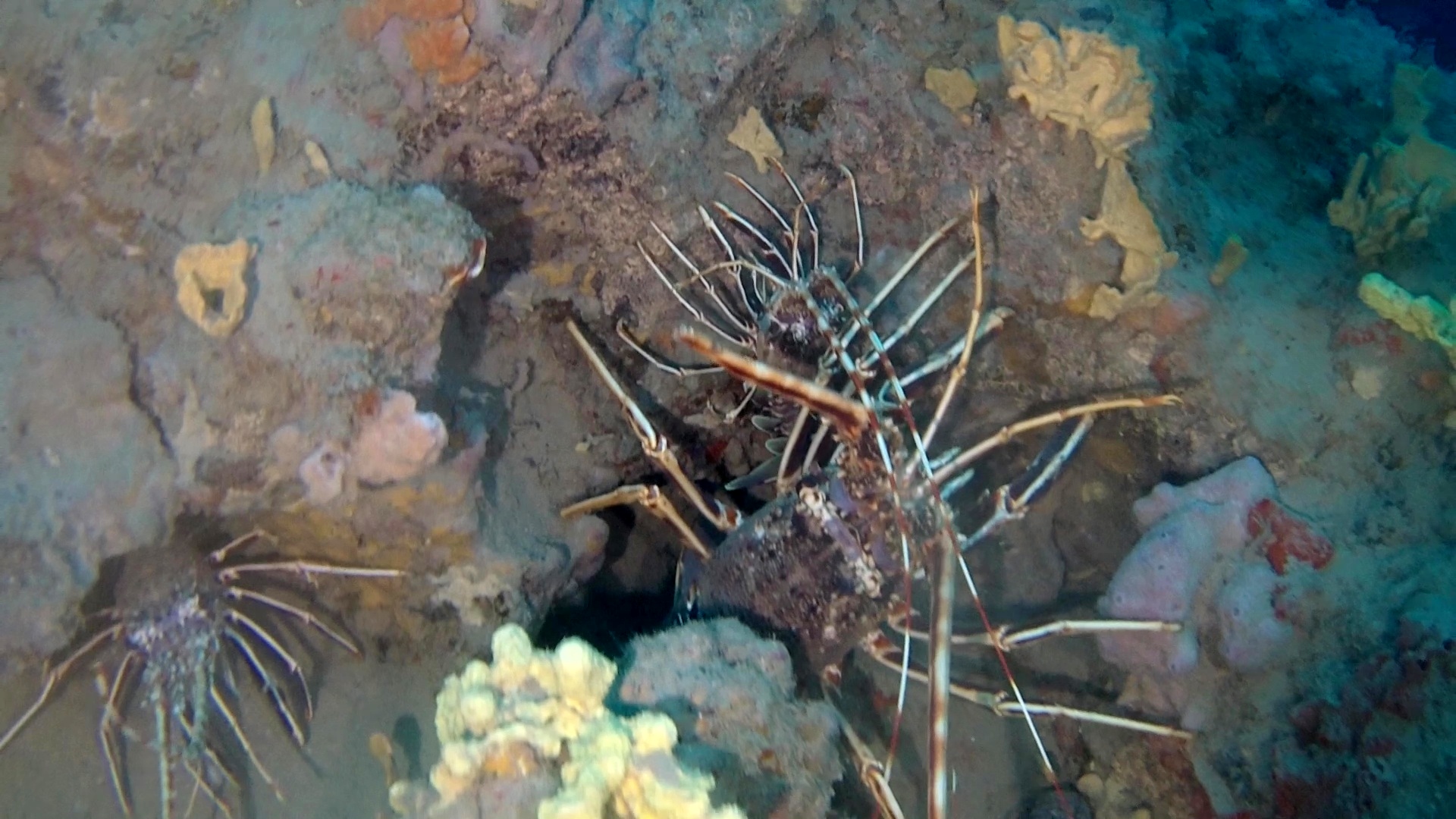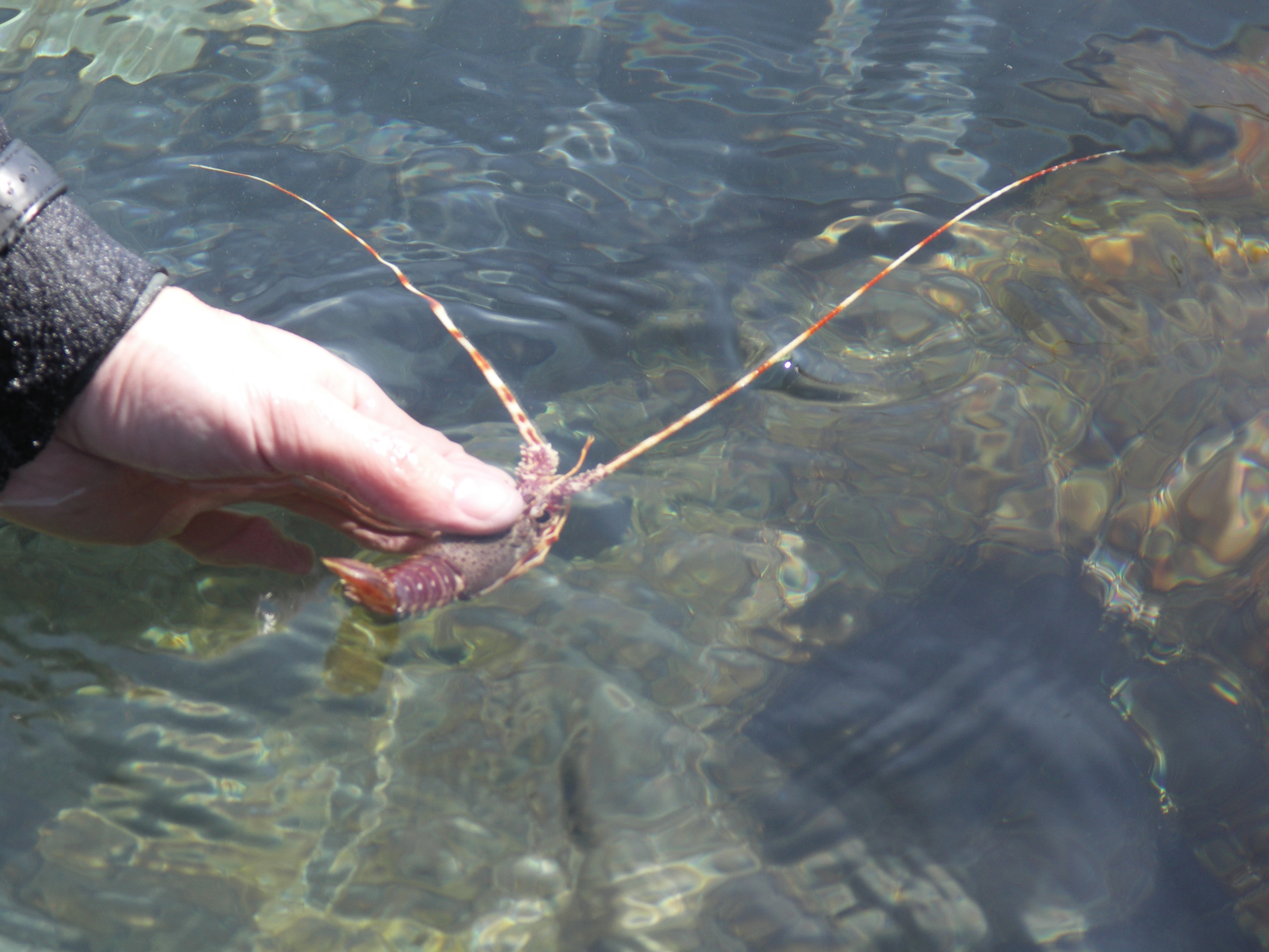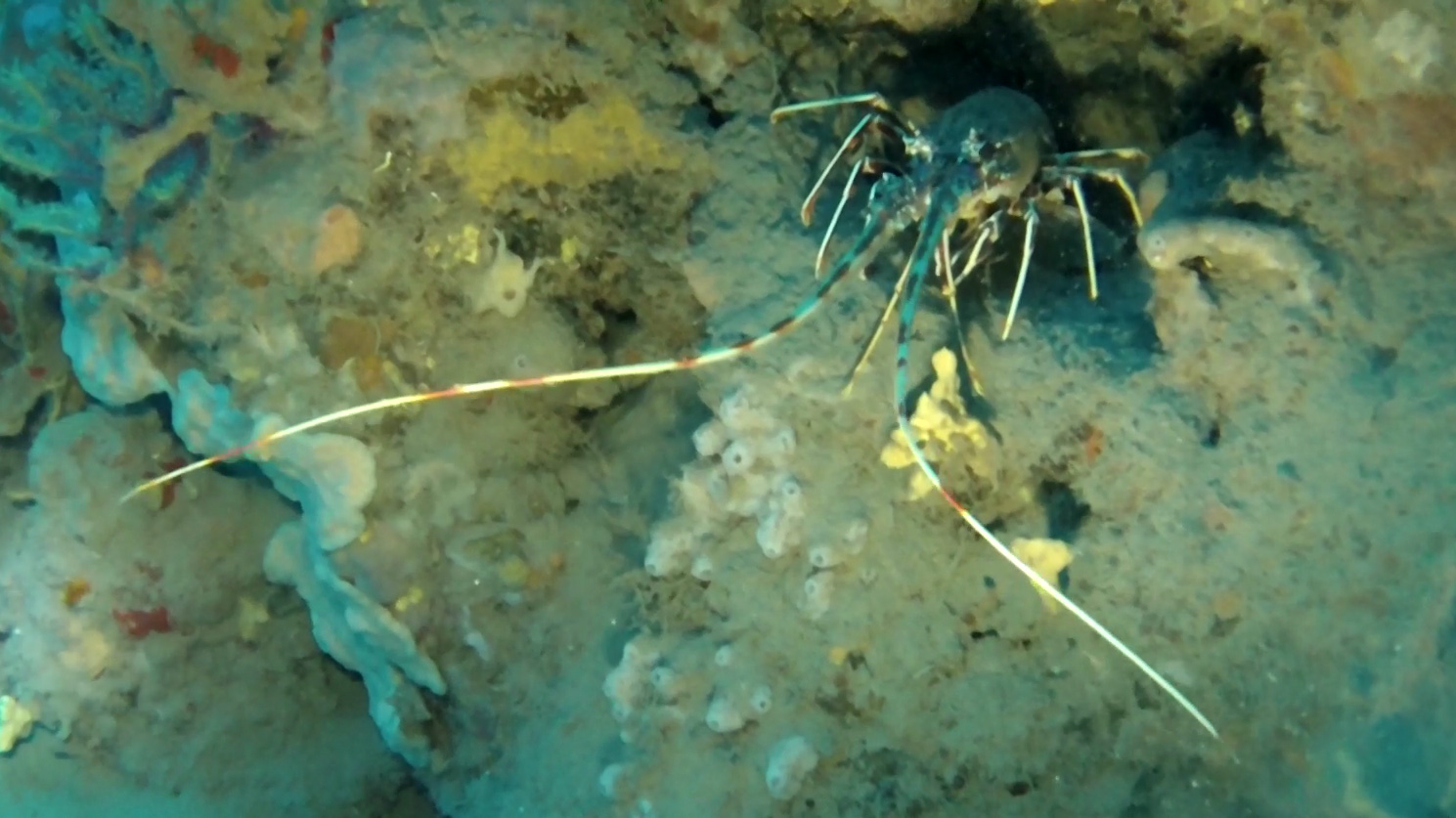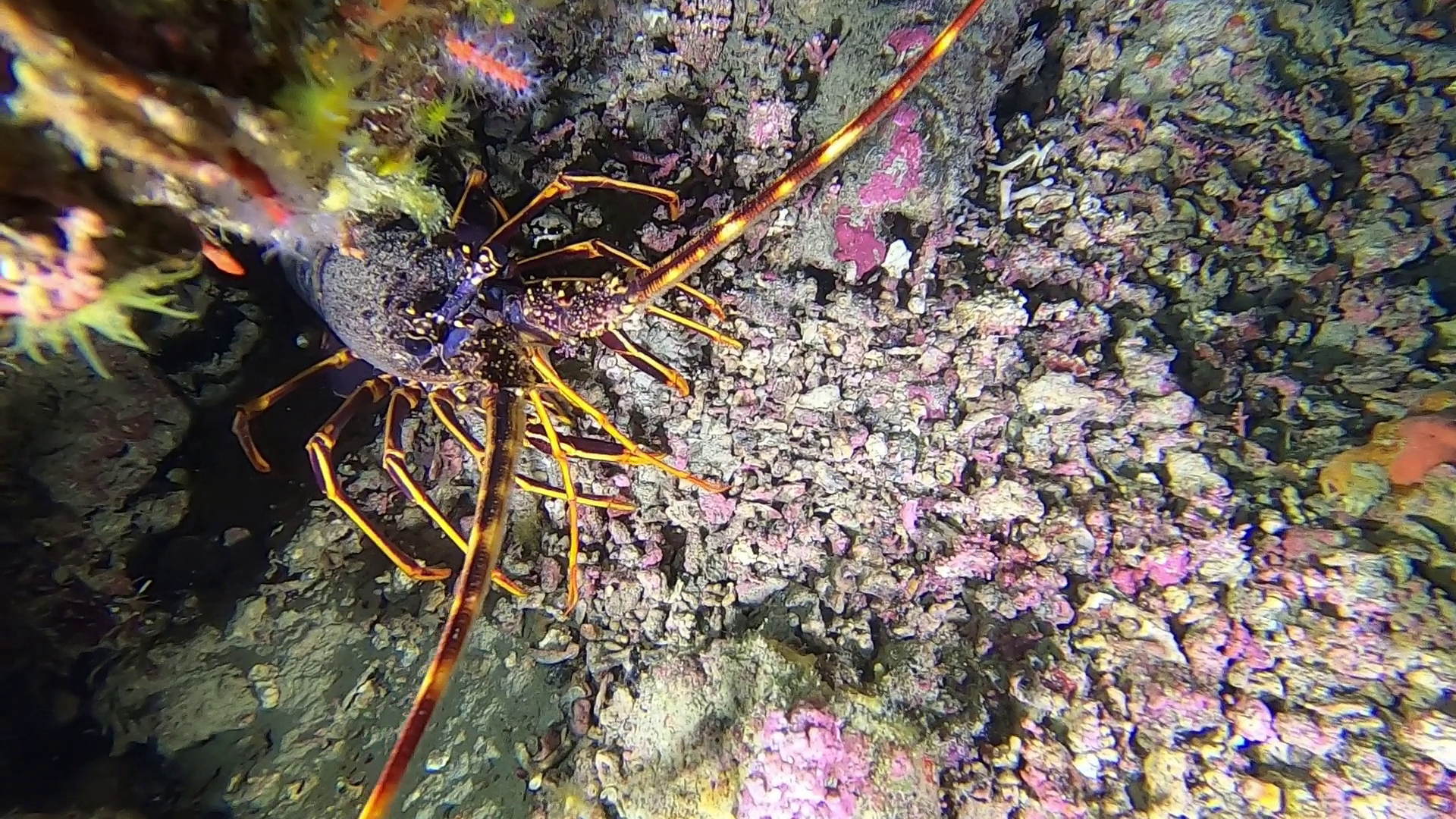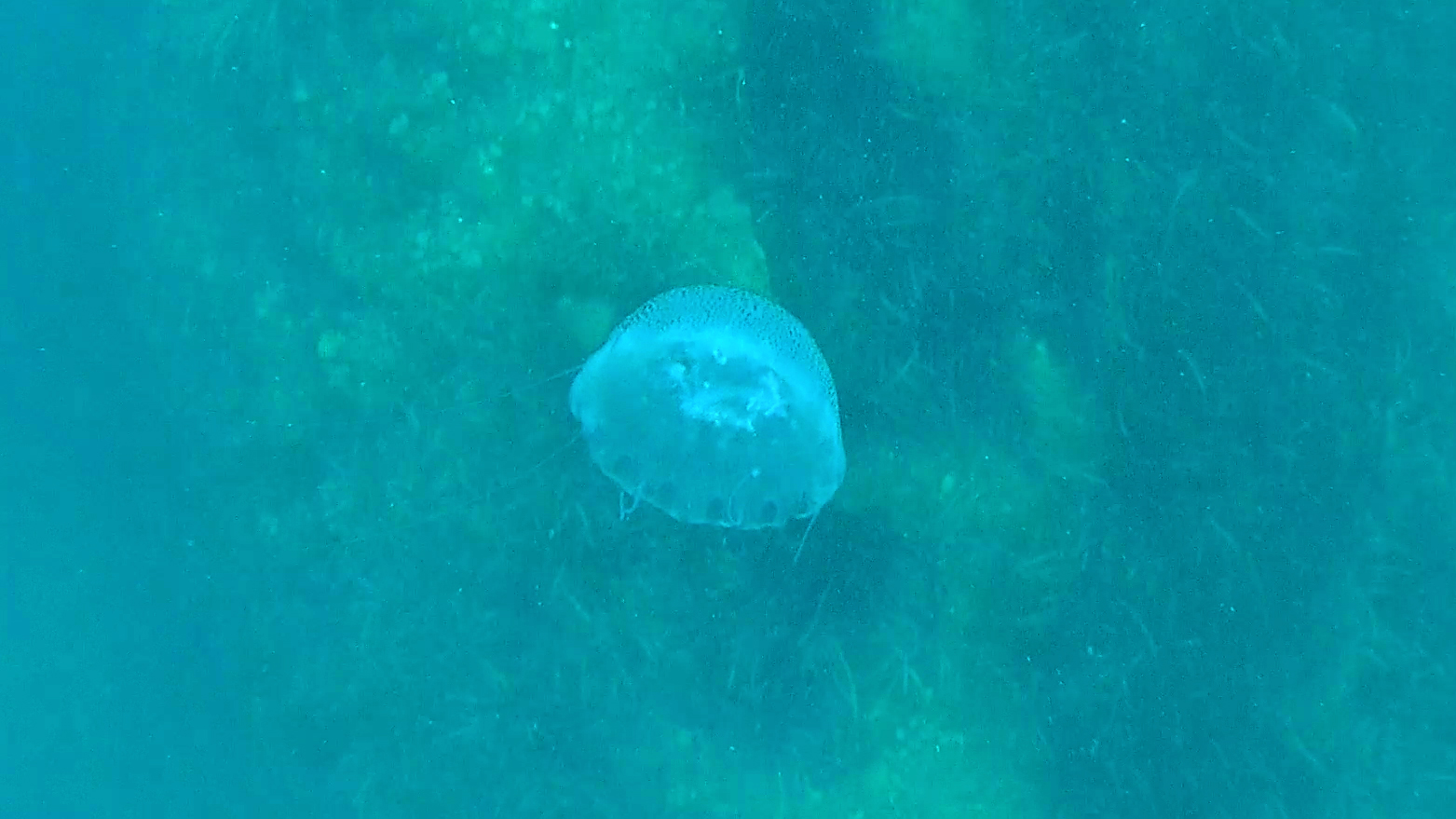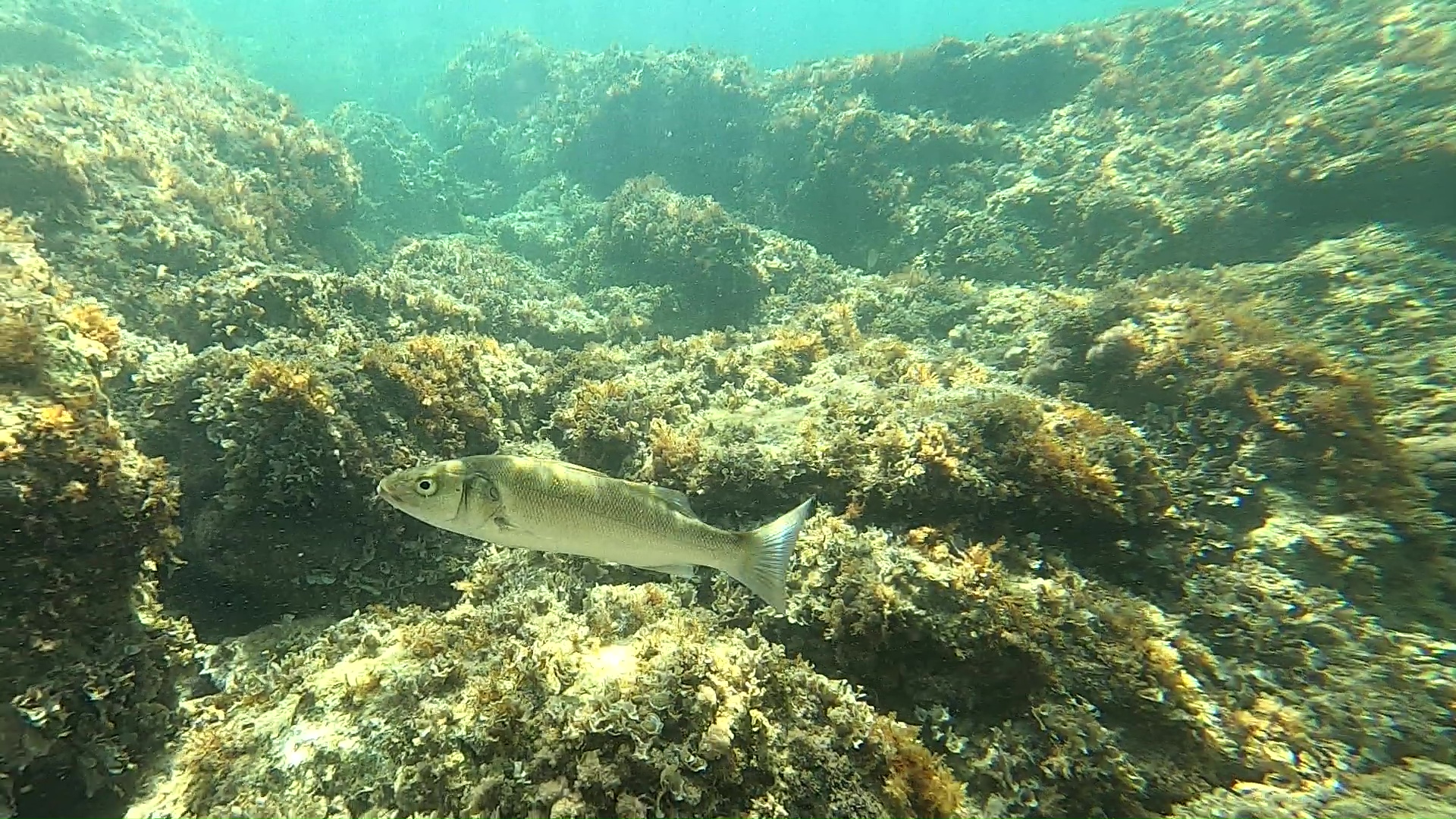Spiny lobster (Palinurus elephas Fabricius, 1787) is a crustacean of the order Decapoda who lives in the depths of the Mediterranean Sea and eastern Atlantic Ocean. Aragosta mediterranea Palinurus elephas Spiny lobster intotheblue
Description
It has a medium-large size with an average length of 20-40 cm and a maximum of 50 cm and a weight up to 8 kg. The body is of sub-cylindrical shape, coated by a shell that during growth changes several times to recreate a new one. The carapace is divided into two parts – the cephalothorax (front) and abdomen (back) – with a color from brownish-red to purple-brown and is strewn with thorns in a conical shape.
The abdomen is formed by 6 movable segments. Before it presents two longer antennas of the body, folded back, yellow and red at times, which have the function of sensory organs and defense; on the front they are also two different plugs V. Aragosta mediterranea Palinurus elephas Spiny lobster intotheblue
The last segment of Pleon, the telson, together with pleopods the sixth segment, form the tail fan, useful for swimming. It has several legs, but only a part are used for walking. Being a Palinuro has no chelate legs. Throughout his life he never stops growing and it is a rather long-lived animal: it can also live up to 70 years.
Distribution and habitat
It is widespread in the Mediterranean Sea and eastern Atlantic Ocean. He lives in rocky bottoms from 20 m up to 150 m deep.
Biology
It is a gregarious species and rather sedentary, are often found along with numerous examples.
Supply
It feeds on plankton, algae, sponges, annelids, echinoderms, bryozoans, crustaceans and fish, sometimes even carcasses of these.
Reproduction
Reproduction occurs in late summer and in winter the larvae are born, which immediately reached the seabed that will host for the rest of their lives.
Threats and conservation
It is particularly appreciated in the kitchen to the goodness of his flesh, however, it is a protected species included in Appendix III of the Bern Convention. In some recipes it is applied to the live cooking method in boiling water, as it is widely believed that invertebrates do not perceive pain. In this regard the Norwegian Government had requested in 2005 a scientific study that seemed to have confirmed as their nervous system is not able to process these sensations.
However later, in February 2013 was published a new study by Irish researchers has refuted the conventional wisdom and the old Norwegian study, highlighting how the movements of the crustacean at the time the dive would not be due to automatic reflexes, but real perception of pain.
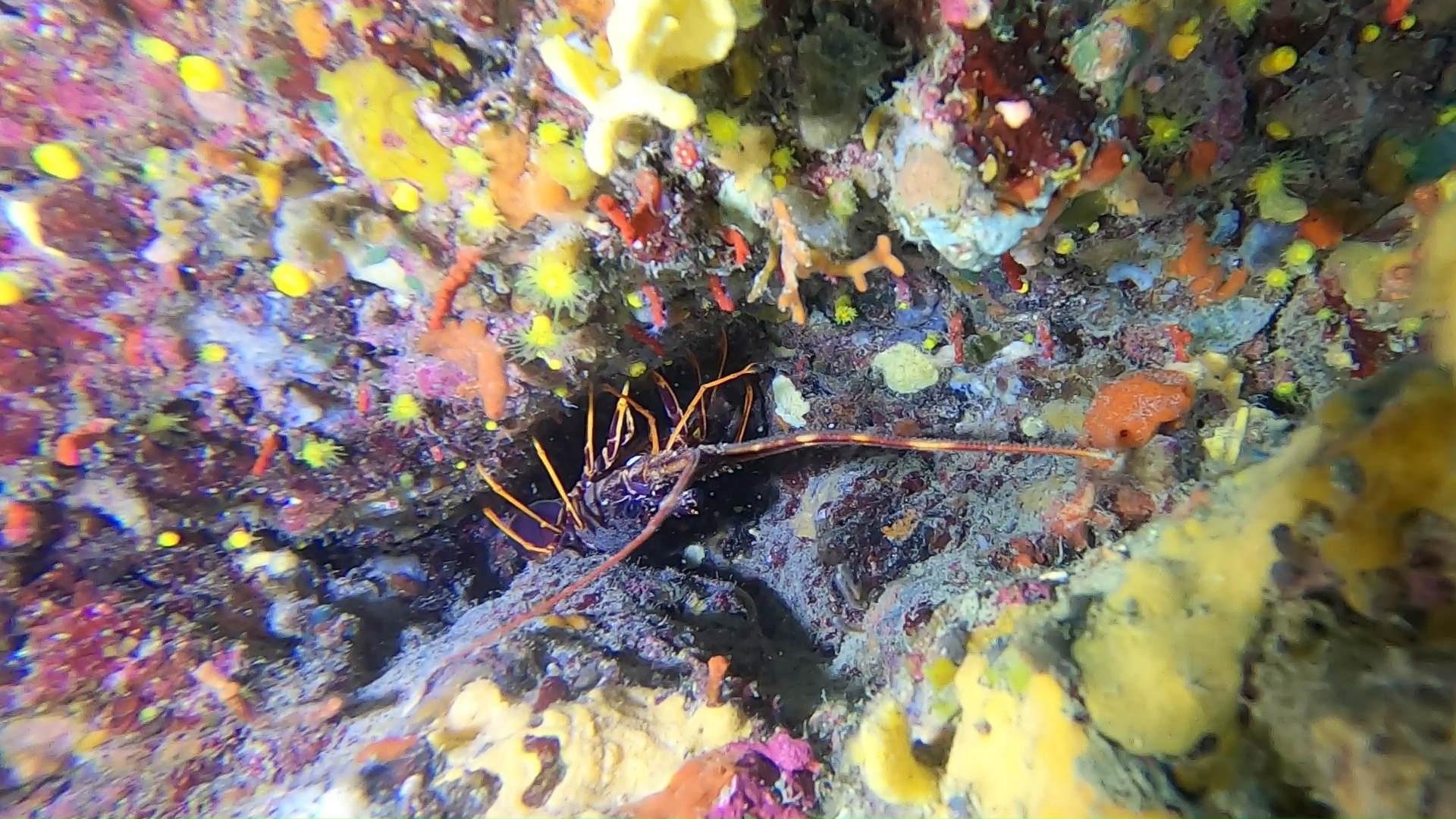
Aragosta Mediterranea Palinurus elephas Spiny lobster – Corallo Rosso – Corallium Rubrum – intotheblue.it
Curiosity
The high content of hemocyanin in their hemolymph – the common circulation of blood and lymph – gives the purple color, which, however, is maintained only when the lobster is deep. In the light of the sun or on the surface purple color fades. Often the addition of ammonia to shellfish fixed red or purple coloration.
Similar species
In the Mediterranean there are two other similar species: Palinurus mauritanicus, which has a more towards the pink coloration and lives at greater depths (180-600 m) Palinurus regius, which has a more towards the green coloring.
Gallery
Video Gallery
 English
English Italiano
Italiano
